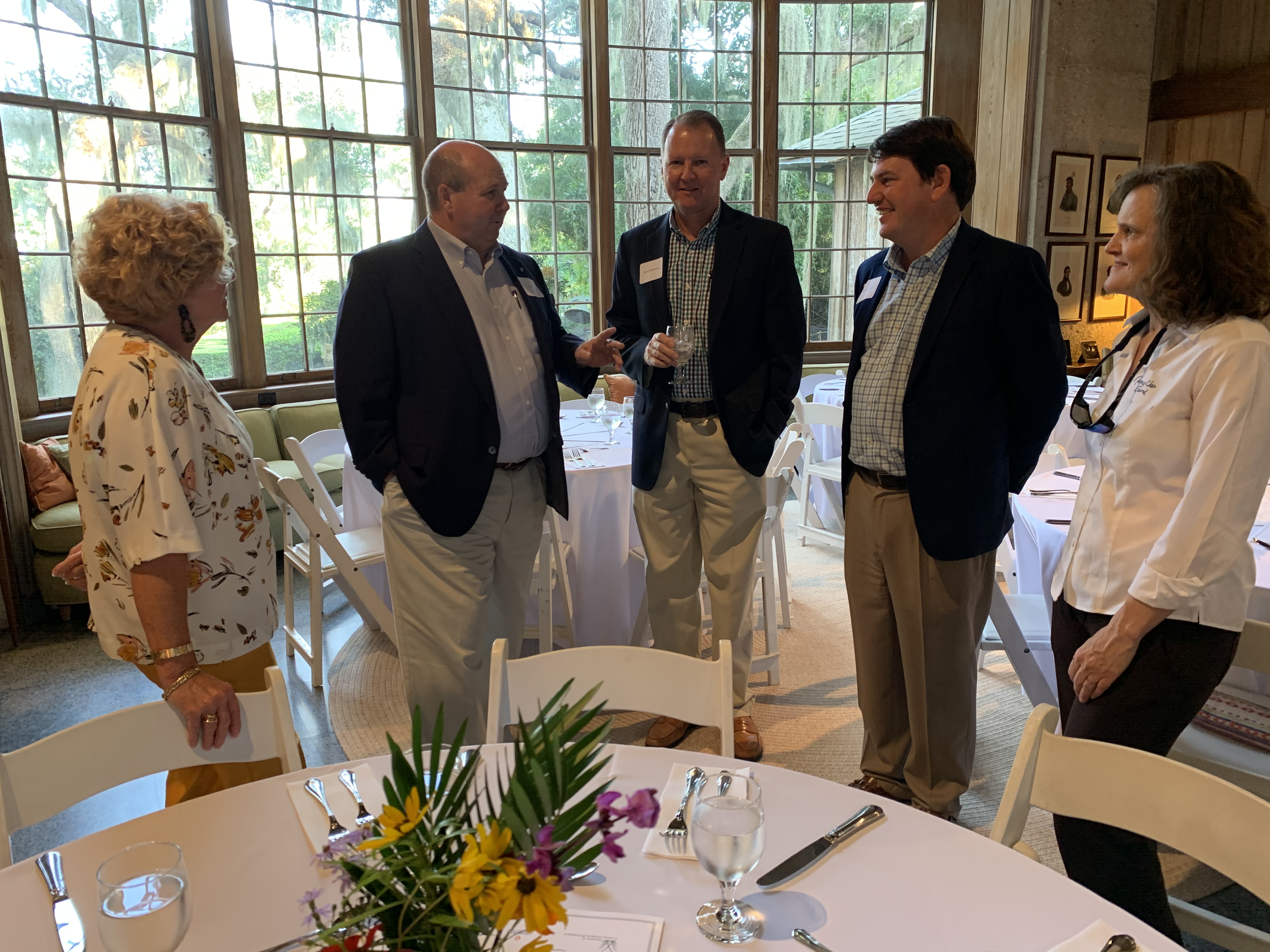Over 45 conservation funders and leaders gathered at Musgrove September 26 to hear a moving presentation from Ed McMahon, the Charles E. Fraser Chair on Sustainable Development and Environmental Policy, Urban Land Institute. Ed’s presentation focused on preserving our country’s special places and leveraging them effectively for economic development. In his presentation, he discussed home buyers seeking real estate on golf courses, not because they are golfers, but because they want the expansive natural views. He also cited that today’s workforce first looks for a quality place to live, and only then seeks employment in those places. Natural areas, trees, shade, community, walkability and outdoor amenities are all variables that people are searching for in the places they call home.
Jason Lee of the Georgia Department of Natural Resources, Wildlife Conservation Section was also on hand to give an update on some critical coastal species. He reported that loggerhead turtle nesting is at the highest since recordkeeping began in the 1970’s. Sadly, the North Atlantic right whale population has declined significantly, due to altered plankton populations off New England and Canada and fisheries impacts in the Northeast. The DNR’s Conservation Division continues to be focused on projects that increase the resiliency of the Georgia Coast and on additional large-scale land protection projects.
Brent Buice of the Eastcoast Greenway Alliance presented a progress report on the hard work to connect Maine to Florida with a series of trails. Unfortunately, he noted, Georgia is in last place with the least number of miles of trails constructed. “One challenge for Georgia has been taking a good idea and getting it permitted, funded and shovel ready.” He talked about the new Georgia Outdoor Stewardship Fund and the availability of funds for “shovel ready” trail projects, but that the projects would need to be completed within 24 months from the award date and that is another hurdle.
Finally, Dr. Marsha Certain illustrated her own journey through some of Georgia’s most special places. In her slideshow presentation, she was frequently seen with a kayak and backpack. Dr. Certain is now on the Board of The Nature Conservancy and has been able to effectively weave her love of the outdoors into her philanthropy and volunteerism.
Georgia's coast is an environmental gem. Its special qualities include one-third of the remaining salt marsh on the entire East Coast, estuaries that serve as the ocean's nursery, and the greatest biodiversity in Georgia including rare and endangered migratory shorebirds, sea turtle nesting grounds, and the only known calving ground for North Atlantic right whales.



